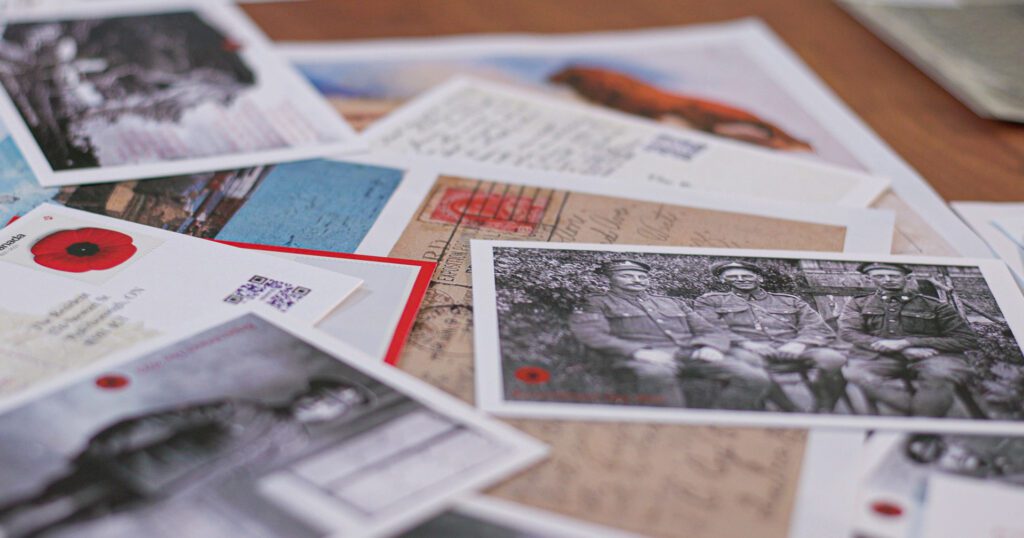With ceremonies being held this Saturday to mark Remembrance Day, a special project from Western University in London, Ont., is looking to connect the past to the present.

Over the past 15 years, history professor Jonathan Vance has read thousands of postcards sent from Europe by the men and women who served Canada during the First World War.
The cards – which were archived as part of the Ley and Lois Smith War, Memory and Popular Culture Research Collection from the university’s department of history – carried messages and pictures of those were served during the war from 1914 to 1918.
In bringing those messages back into the light, the project will see more than 400 replicas of the postcards be mailed back to the original Canadian addresses that received them.
As the postcards are set to re-enter the public eye around Remembrance Day, Vance said that he “wanted to use this project to remind people that the men and women deeply engaged in the war were in their world, their communities and in their neighbourhoods.”
“They have a connection with us in 2023, and this is just one way to remind people of that.”
Accrediting some of his students, Vance said that the postcard project got underway over the summer with the help of recent graduate Alejandra Largo Alvarez, BA’23, and current fourth-year students Rylee Brooks and Bailey Ashton.
“They’re all incredibly personal,” she said. “We really just want people to take the time to acknowledge the people of the past who may have even lived in their own home and slept in their own bedrooms.”

Get breaking National news
According to the team, the most “labour-intensive step” was going through roughly 15,000 postcards to ensure that there was a representative from different cities across Canada. Following that, the students aligned the addresses from service records to determine which postcards corresponded with existing houses.
In sifting through the large piles, Brooks recalled one postcard that resonated with her.
“It was actually a postcard from my hometown of Sarnia and it was written to somebody buried in one of our cemeteries that I actually knew the name of. She was writing to her about her recent surgery,” Brooks said.
She added that most postcards focused on home and everyday life.
Vance said that while some may seem like mundane conversations, these cards represent “the soldiers’ desire to feel part of home, while isolated on the front.”
Each postcard also continues a QR code for the Wartime Canada website as well as Vance’s email for recipients seeking more information.
Going back to Brooks, she stressed that beyond sparking a reconnection, they hope this project causes residents to really take the time to reflect.
“We believe the most important thing is taking a moment to reflect, especially on Remembrance Day,” she said.
“Reflect on these soldiers who fought for our country and who once occupied our homes and our streets.”










![[Left]: Bailey Ashton, a fourth-year history student, worked with professor Jonathan Vance as one of three research assistants on the postcard project.](https://globalnews.ca/wp-content/uploads/2023/11/110623_postcard_Ashton_Vance-1024x538-1.jpg?quality=65&strip=all)


Comments
Want to discuss? Please read our Commenting Policy first.